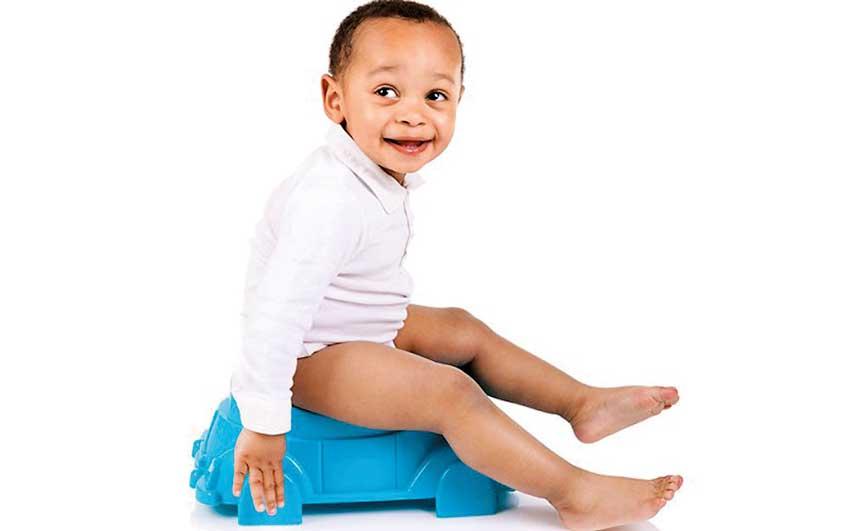30 Jul 2021 - {{hitsCtrl.values.hits}}

 Constipation is one of the commonest problems encountered in childhood. “Doctor, my child opens bowel only once in four to five days,” is a frequent complaint that we hear at the children’s clinic. Constipation can occur due to a range of problems, most of which are curable. Rarely, constipation can also be a sign of a more sinister underlying cause. Today we are consulting Dr. Maheshaka Wijayawardena, Consultant Pediatrician, Base Hospital Wathupitiwala, to discuss in detail about constipation in children.
Constipation is one of the commonest problems encountered in childhood. “Doctor, my child opens bowel only once in four to five days,” is a frequent complaint that we hear at the children’s clinic. Constipation can occur due to a range of problems, most of which are curable. Rarely, constipation can also be a sign of a more sinister underlying cause. Today we are consulting Dr. Maheshaka Wijayawardena, Consultant Pediatrician, Base Hospital Wathupitiwala, to discuss in detail about constipation in children.
What is constipation?
Constipation can be described as either a difficulty in passing stools/ hard stools or reduced frequency of bowel opening, explains Dr. Wijayawardena. While it is a common problem encountered throughout childhood, constipation is more commonly seen around weaning, toilet training and school entry.
Causes
The causes of constipation can be divided as organic or functional. Hypothyroidism or reduced secretion of thyroid hormone, abnormalities in gastrointestinal tract like Hirschsprung’s disease, Cystic fibrosis and lead poisoning are some of the organic causes for constipation in children. Individual, case specific treatment is needed for children suffering from constipation.
But, about 95% of the children presenting with constipation have functional causes, according to the doctor. Functional causes are causes that are not explained by an inherent deficit of the body, but are due to outside factors. Some common causes for constipation are dietary factors like reduced fluid intake, reduced fiber and lack of proper toilet training.
As the bulk of the stools is formed by fibers and water in the diet, children who are taking diets rich in refined carbohydrates and fast foods are more likely to have constipation.
Our gastrointestinal system is adapted in such a way that stool passage is easier when a person is squatting down or sitting in a commode. Children who are not potty trained sometimes tend to pass stools in unnatural postures, and as it is uncomfortable and even painful, they tend to ‘hold in’ the stools. As defecation becomes unpleasant for the child, this can lead to chronic constipation.
Presentation
Common presentations of children with constipation are reduced stool frequency and bloodstained stools.
Hard stools can cause damage to the soft inner walls in the lower gastrointestinal tract and as a result, stools can be bloodstained and appear in the form of streaks.
In addition, chronically constipated children can even present with fecal soiling, which may be misinterpreted as diarrhea. But what happens in reality is as the hard stools block the lower passage and softer stools from above leak through and stain the clothing. This might even lead to stigma and social isolation of the child.
Investigations
Investigation for constipation is varied and is mostly focused at diagnosing organic causes for constipation. It may range from thyroid function tests to motility testing of bowels and even endoscopy and biopsy to diagnose abnormalities of the GI tract like Hirschsprung’s disease, which occurs due to absence of nerve bundles in certain parts of the lower gastrointestinal tract.
Red flags
There are certain red flag signs when it comes to constipation, warning of severe underlying disease. Constipation, coupled with vomiting, abdominal pain and abdominal distension can be a feature of bowel obstruction, which might require surgical intervention. Chronic constipation, associated with difficulty in gaining weight or severe failure to thrive can be a feature of Hirschsprung’s disease.
Constipation in newborns
While a newborn typically opens bowel multiple times a day, some newborns open bowel once in two to three days. If the child’s weight gain is adequate, this can be quite normal, explains the doctor. But a neonate can experience constipation due to other, more serious causes as well. Some such causes for constipation are obstruction of the gastrointestinal tract due to congenital causes like malrotation or meconeum ileus, Hirschprung’s disease and neonatal hypothyroidism. In addition, inadequate feeding of the child can also result in infrequent bowel opening.
Treatment and prevention
As around 95% of constipation is functional, treatment of constipation in these children mostly focuses on education, behavioral therapy, dietary changes and laxative medication if needed, with proper follow up.
Correct potty training of young children is a crucial step in preventing functional constipation, explains Dr. Wijayawardena. The age that toilet training can begin differs from child to child, and usually ranges from 18 to 24 months. Making it a practice to sit children on the potty for ten minutes each morning will help regularize their bowel habits.
A diet rich in fiber and fluids will also help in avoiding constipation in children. Providing children with a diet rich in fruits and vegetables and avoidance of refined food as much as possible is important. Ensuring adequate fluid intake in school going children will also help in preventing constipation.
Most laxatives are safe to be used in children, as they usually work while in the gastrointestinal tract itself, by increasing the bulk of the stools, without getting absorbed into the body. But, the medication should only be prescribed by a doctor, after proper assessment of a child.
What not to do
Some parents of children suffering from constipation have made it a habit to use rectal enemas frequently to help the child pass stools. But, frequent use of enemas in children can cause harm in the long-term, cautions the doctor. An enema, inserted into the rectum of a constipated child, will clear the stools not only in the rectum, but also in a significant portion of the large bowel. Therefore, due to the time that takes to refill the lower part of the large bowel, child will usually not pass stools for several more days. This will cause concern again in parents, misidentifying it as constipation and may turn into a vicious circle of constipation and administration of enemas. Therefore, an enema in a child should only be administered under medical guidance.
Take home message
Constipation is a common problem encountered in childhood. However, majority of children who are suffering from constipation have preventable causes for their condition. Health education, correct toilet training and a diet rich in fiber and fluids can prevent constipation in majority of children. In children suffering with long term constipation, constipation associated with abdominal pain, neonates with constipation and poor weight gain, seeking medical help is advisable.
21 Dec 2024 2 hours ago
21 Dec 2024 2 hours ago
21 Dec 2024 3 hours ago
21 Dec 2024 6 hours ago
20 Dec 2024 20 Dec 2024